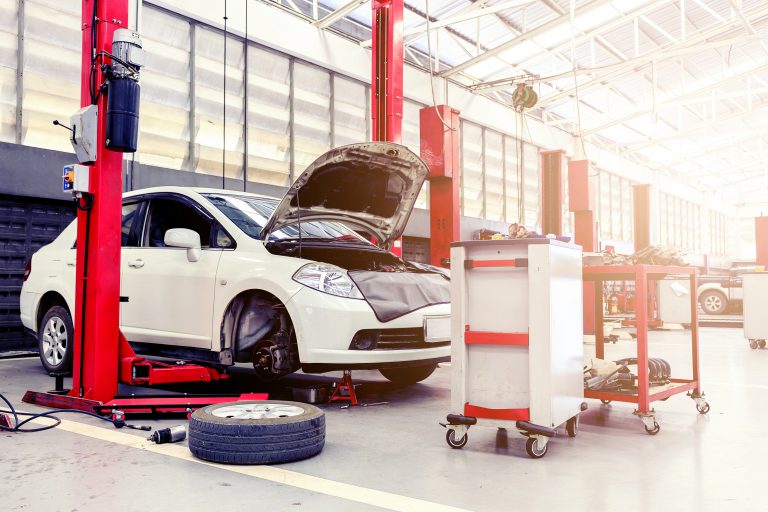Highlights
Newest Auto Insurance Law for 2020
Laws regarding auto insurance are evolving all the time. Generally, these laws include additional stipulations for insurance carriers to abide by, or new business practices they must adhere to. They’re not all that important for folks shopping the insurance market.
Recently, a law worth public attention due to its impact on the consumer was made available on the California State Assembly’s website. The Assembly, which serves as the lower legislative house to the California Senate, passed Bill No. 1538 at the end of July last year, slated to go into effect as of January this year (2020). The bill states:
This bill would make that requirement apply to a policy for automobile physical damage coverage, instead of comprehensive coverage, if a covered automobile is damaged by collision or otherwise and the insurer knows that the automobile will be repaired. The bill would state that these provisions do not limit the right of an insured to select the auto body repair shop or other repair facility to repair the damaged vehicle, or to decide not to have the vehicle repaired. The bill would prohibit an insurer from withholding the payment of reasonable repair cost benefits that are otherwise payable under the policy if the insured decides not to have the vehicle repaired. The bill would state that these provisions do not prohibit an insurer from restricting payment in cases of suspected fraud or from including a named loss payee or lienholder as an additional payee on the claims payment check or draft, as described. The bill would also state that these provisions do not prohibit an insurer from requiring that a damaged vehicle be repaired as a condition for payment if the damage to the vehicle is sufficiently serious that safety features that are part of the vehicle’s operating systems are compromised. The bill would also make technical changes. (https://leginfo.legislature.ca.gov/, 2019-2020, Assembly Bill No. 1538, para. 3)
Essentially, provisions for the bill give additional power to insureds with Comprehensive and Collision Insurance to decide how their insurance payouts are applied, including:
- Insured may now choose whether or not to apply insurance compensation towards vehicle repairs, or not at all. If the vehicle is not repaired, the insurer is still obligated to make payment to the insured, equal to the cost of repairs.
- Reinforces the insured’s legal right to choose repair facilities, regardless of the insurer’s preference or recommendations.
- The insurer may not prohibit the insured from exercising these rights, unless suspected of fraud.
Due to the nature of this bill, there is a possibility for exploitation from the consumer when it comes to the repair bill. Therefore, it does not provide protection for the insured against an insurer withholding compensation if the insured is suspected of fraud.
Beyond this new bill, insureds are still expected to carry Financial Responsibility on the road at all times. For those who aren’t familiar with the concept, read on to find out what your fundamental obligations are as a driver.
What is Financial Responsibility?
Financial Responsibility can be considered synonymous with the term “insurance”, according to the California DMV. You are required to have Financial Responsibility to drive on public roads, and required to have proof under certain circumstances. It can be requested by law enforcement at any time during a traffic stop, and you must have it to renew vehicle registration or when involved in an auto accident.
You can obtain proof of Financial Responsibility in a few separate ways, which we’ll explain below.
Minimum Liability Insurance
The most common form of Financial Responsibility is also the easiest to obtain. It’s called Liability Insurance, and there are minimum amounts of coverage that you must have in order to be considered legal. California and all other states will have varying amounts for their minimum limits. In California specifically, you must have $15,000 worth of Personal Injury Liability coverage, $30,000 worth of Per-Accident Injury Liability coverage (if you injure multiple people), and $5,000 worth of Property Damage Liability coverage. The industry refers to these numbers as 15/30/5.
It sounds like an expensive scenario considering you’re covered for tens of thousands of dollars, but the truth is that minimum limits are incredibly affordable. They are the cheapest form of auto insurance you can buy.
In addition, 15/30/5 is truly not a lot of coverage. Medical bills can climb into the hundreds of thousands if someone has incurred a serious injury, so $15,000 per person is going to disappear fast. If a party’s vehicle was totaled in an accident, consider the cost of replacing a new car. According to Edmunds.com, the average cost of a new car in the US for 2019 rose to $36,718. Assuming you were at-fault for the accident, that $5,000 in property coverage is history, and you’re still on the hook for $31,718.
Our experts here at Haven Insurance Services recommend much higher coverage limits, starting at $50,000 worth of Personal Injury Liability coverage, $100,000 worth of Per-Accident Injury Liability coverage, and $50,000 worth of Property Damage Liability coverage. More coverage is always optimal in the long run, but this is a good starting point. It’s not the end of the world if these minimums don’t fit within your budget, however, we suggest making it a future goal to achieve as soon as possible.
Alternative Ways to Prove Financial Responsibility
The DMV allows other forms of Financial Responsibility, but they are ultimately less convenient:
- $35,000 cash deposit with the DMV. This money will be accessed after reporting an incident to the DMV and paid to applicable parties.
- $35,000 Surety Bond with a business licensed in California.
- DMV-issued certificate of self-insurance. Basically, you prove to the DMV that you can afford to pay any expenses resulting from an accident on your own. This option is truly only viable if you have throw-away money, which most of us do not.
Link to California DMV Resource:
https://www.dmv.ca.gov/portal/dmv/detail/pubs/brochures/fast_facts/ffvr18
Are you meeting your state’s minimum guidelines?
If you’re just getting started on the road or feel unsure about your current coverage, give us a call. Haven Insurance agents have a bounty of knowledge, including guidelines for other states we service. We would be more than happy to assist you.
Speak With an Agent
(909) 944-9022
Check out our Facebook page for future blog post alerts:
Frequently Asked Questions
Do I need to alert the DMV if I am cancelling my auto insurance policy?
Yes, you should contact the DMV as soon as you cancel your coverage if you do not plan on re-insuring it. Insurance carriers must alert the DMV when there is a lapse in coverage on your vehicle. If you do not inform the DMV that you are seeking new coverage or are changing the registration to non-operational, there is a possibility of having your registration suspended. You have 45 days to complete this if the vehicle was already in your name before the coverage lapse, or 30 days if you are the a owner.
I cannot afford state-minimum auto insurance coverage. What should I do?
You simply cannot drive without meeting the minimum requirements. There are low-cost options out there, and even state-funded programs that you can apply for as well. Ultimately, the obligation for Financial Responsibility is on you. Don’t drive without coverage. We can shop for the cheapest prices for you, so give us a call! If you were unable to afford quotes from any carrier and live in California, check out: www.mylowcostauto.com to see if you are eligible for the state program.


